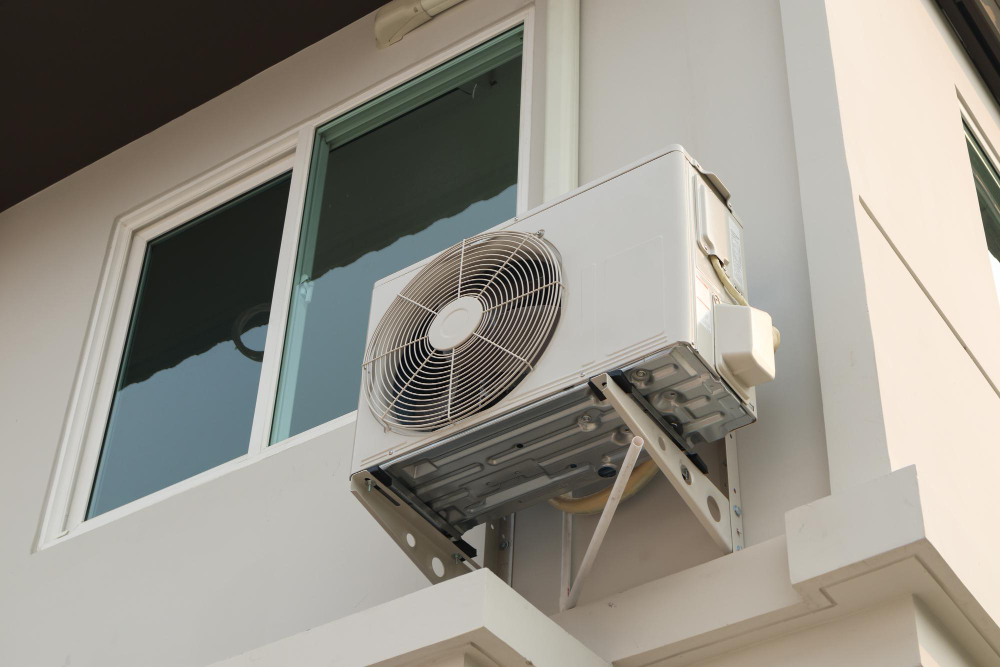Essential Tips When Buying a Home With an Existing HVAC System

Moving into a new home is an exciting venture filled with numerous tasks and considerations. One critical aspect that often gets overlooked is the existing HVAC system. In Central Florida, where the climate demands efficient heating and cooling year-round, the state of your HVAC system can significantly impact your comfort and utility bills.
In this blog post, we will guide you through the essential tips for evaluating an existing HVAC system when buying a home in Central Florida. We'll also highlight why having access to reliable HVAC supplies is crucial and how Discount Air Supply can help you maintain a well-functioning system.
Why the HVAC System Matters
Your home's HVAC system plays a pivotal role in maintaining a comfortable living environment. This is especially true in Central Florida, where high temperatures and humidity levels can make summers unbearable without proper air conditioning. Conversely, winters, although mild, still require efficient heating. An existing HVAC system that is well-maintained can provide efficient cooling and heating, leading to lower energy bills and enhanced comfort.
Key Considerations Before Buying a Home with an Existing HVAC System
1. Age of the HVAC System
The age of the HVAC system is one of the first factors to consider. Most HVAC systems have a lifespan of 10-15 years. If the system is older than this, it might be nearing the end of its useful life, requiring replacement soon.
How to Check:
- Ask the current homeowner for maintenance records and installation details.
- Look for a label on the unit that states the manufacture date.
2. Maintenance History
A well-maintained HVAC system indicates that the previous homeowners took good care of the equipment, potentially extending its lifespan and maintaining its efficiency.
Things to Look For:
- Regular maintenance schedules.
- Records of any repairs or part replacements.
- Professional servicing by certified technicians.
3. Energy Efficiency
Energy-efficient HVAC systems can significantly reduce your utility bills. Check if the existing system meets current energy efficiency standards.
How to Verify:
- Look for the Energy Star label, which signifies high efficiency.
- Check the SEER (Seasonal Energy Efficiency Ratio) rating; a higher SEER rating means better energy efficiency.
4. Size and Capacity
Ensure that the HVAC system is appropriately sized for the home. A system that is too small will struggle to cool or heat the space, while an oversized system will cycle on and off too frequently, wasting energy.
Steps to Determine:
- Compare the square footage of the home to the capacity of the HVAC system.
- Consult with an HVAC professional to assess whether the system is the right size for the house.
5. Indoor Air Quality
Your HVAC system should provide good indoor air quality by effectively filtering out pollutants and allergens.
What to Check:
- Inspect the condition of the air filters.
- Ask if the system includes any advanced air purification features.
Inspecting the HVAC System
Before finalizing your home purchase, it's wise to have the HVAC system inspected by a qualified technician. This can help identify any potential issues and give you a better understanding of the system's condition.
Inspection Checklist:
- Thermostat: Ensure it functions correctly and is programmable for energy savings.
- Ductwork: Check for leaks, damages, or blockages that could affect efficiency.
- Refrigerant Levels: Ensure the system has adequate refrigerant.
- Electrical Connections: Inspect wiring and connections for safety and functionality.
- Noise Levels: Listen for any unusual noises that could indicate problems.
Importance of Reliable HVAC Supplies
Ensuring your HVAC system remains in top condition requires access to high-quality HVAC supplies. Whether you need replacement parts, filters, or tools for regular maintenance, having a reliable supplier is essential.
Why Choose Discount Air Supply:
- Wide Range of Products: From filters to thermostats, we stock everything you need to keep your HVAC system running smoothly.
- Expert Advice: Our knowledgeable staff can help you find the right products for your specific needs.
- Competitive Pricing: Get the best value for your money with our affordable prices.
Tips for Maintaining Your HVAC System
Once you've moved into your new home, regular maintenance of your HVAC system is crucial. Here are some tips to keep it running efficiently:
1. Change Filters Regularly
Dirty filters can impede airflow and reduce efficiency. Change them every 1-3 months depending on usage and filter type.
2. Schedule Annual Inspections
Have a professional inspect and service your HVAC system at least once a year to catch any issues early and ensure optimal performance.
3. Keep Outdoor Units Clean
Ensure the outdoor unit is free from debris, leaves, and dirt. Regularly clean the area around the unit to maintain proper airflow.
4. Monitor Thermostat Settings
Set your thermostat to energy-saving levels when you're away from home. Consider using a programmable thermostat for better control.
5. Check for Leaks
Inspect ductwork for leaks or damage. Sealing leaks can improve system efficiency and lower energy costs.
Conclusion
Buying a home with an existing HVAC system in Central Florida requires careful evaluation to ensure you get the best value and comfort. By considering factors like the system's age, maintenance history, energy efficiency, and indoor air quality, you can make an informed decision.
Remember, maintaining your HVAC system is key to its longevity and efficiency. For all your HVAC supply needs, contact Discount Air Supply today. Our extensive range of products and expert advice will help you keep your system in top condition, ensuring a comfortable and energy-efficient home.